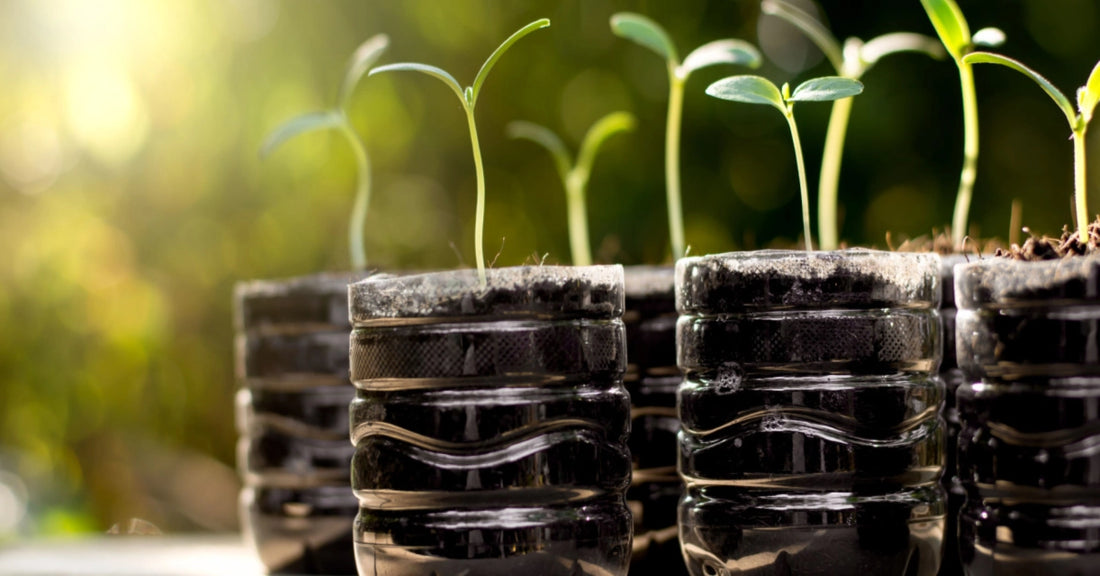
10 Money Saving Tips for Gardening
Share
Growing your own food is a wonderful way to save money…but ask any gardener and they will tell you that gardening expenses can add up. However, there are many simple and creative ways to save money in the garden.
Here are 10 Money Saving Tips to help you save money gardening so you can grow more food!
10 Money Saving Tips for Gardeners
1. Start Your Plants from Seed
Starting your plants from seed does require a little bit of patience but the end result will save you money. Seed packages can contain anywhere from 10-50 seeds per package, meaning you can grow up to 50 plants from seed for the price of one plant start. When starting plants from seed, it is important to do a bit of research before hand and take note of which seeds do best when started indoors and which seeds will do best when sown outdoors.
2. Start a Compost Bin
Compost provides free fertilizer for plants. Start a compost pile using free items from your kitchen, home, and yard. Items like eggshells, vegetable peels, tea bags, cardboard, newspaper, grass clippings, leaves, and more can all be composted. Not only will you be saving money in the garden by composting, but you will also be cutting down on household waste. Composting does take time, so start a compost bin now and next year you will have compost ready for your garden.
3. Make Your own Mulch/Weed Barriers
There is no need to buy expensive weed barriers from a big box store. Instead, use cardboard, newspapers, grass clippings and wood chips around plants to create a natural weed barrier. These will also act as a mulch, holding moisture in the soil and then eventually breaking down into a compost to feed the soil as well.
4. Use Water Collection Systems
Create a rainwater catchment to save money on water. These can be made from collecting rainwater from a roof, gutters, or run off using buckets. Add a screen on top of the bucket to keep debris out and you will have a free water supply ready when your plants need it.
5. Propagate Cuttings
Another way to save money in the garden is to propagate plants. Propagation involves taking a cutting from an established plant, place the cutting in water or rooting hormone, and then allow the cutting to grow a new root system which will eventually become a new plant all on its own. Plants that are easy to propagate include: herbs like oregano, mint, thyme, and rosemary, Berry bushes such as blueberry, elderberry, raspberry, blackberry, and Fig Trees. Tomato plants are also easy to propagate.
6. Upcycle
Get creative and upcycle old items to be used in the garden--old fencing can become trellises, reuse an old table or dresser as a potting bench, reuse yogurt cups and other plastic food buckets to grow plant starts in, pallets can be used as a garden fence, and sturdy tree branches can be used to make bean trellises and teepees.
7. Use Your Extra Seeds
Often, there are extra seeds left in a package after we have planted our garden out. Instead of tossing those seeds, grow your extra seeds as microgreens. Many seeds can be grown as microgreens like lettuce, beets, radish, mustard greens, cabbage, kale, sunflower, and more!
8. Recycle Newspapers
Recycle old newspapers by putting them to use in the garden. Newspapers can be used around bottom of plants as weed barrier and in the compost bin. Newspapers can also be folded into containers to start seeds in.
9. Use Companion Plants as Natural Pesticides
Pesticides are expensive, not to mention bad for you, pollinators, and your plants. Instead of buying pesticides, try companion planting. Onions, Garlic, Herbs, Lavender, Borage and Marigolds are all great companion plants that can help deter pests. These plants will keep the pests away and provide you with even more food when harvested too.
10. Seed Save
Seed saving is a fantastic way to save money in the garden. Seed saving year after year will also produce stronger plants with increased disease resistance and more prolific harvests, which will save you even more money by providing your garden with larger, healthier, plants that produce more food in the same space! Starting with open pollinated/heirloom seeds is a terrific way to insure you will have seeds for your garden for many years to come.
Gardening like all hobbies, will require some investment...but it doesn’t have to be expensive.
After all, the goal is to save money at the grocery store, not spend more money in the garden! We hope these tips will help you save money and produce more healthy food for you, your family and your community.
Blessings of Bounty - Amber Jouben
Heritage Hollow Homestead